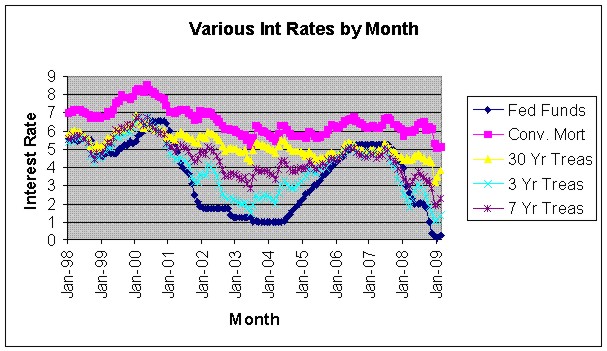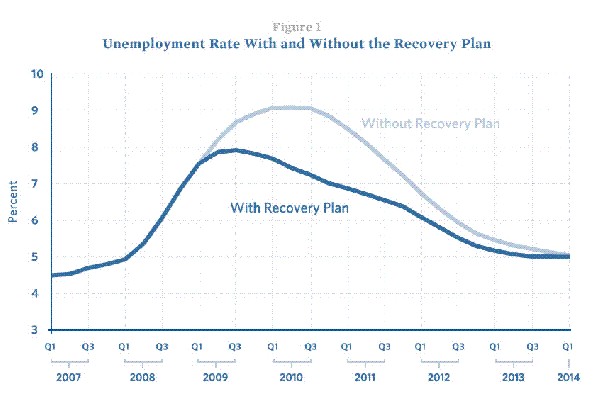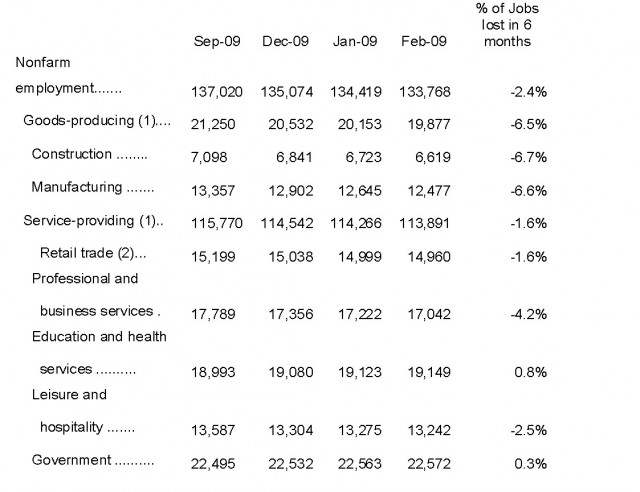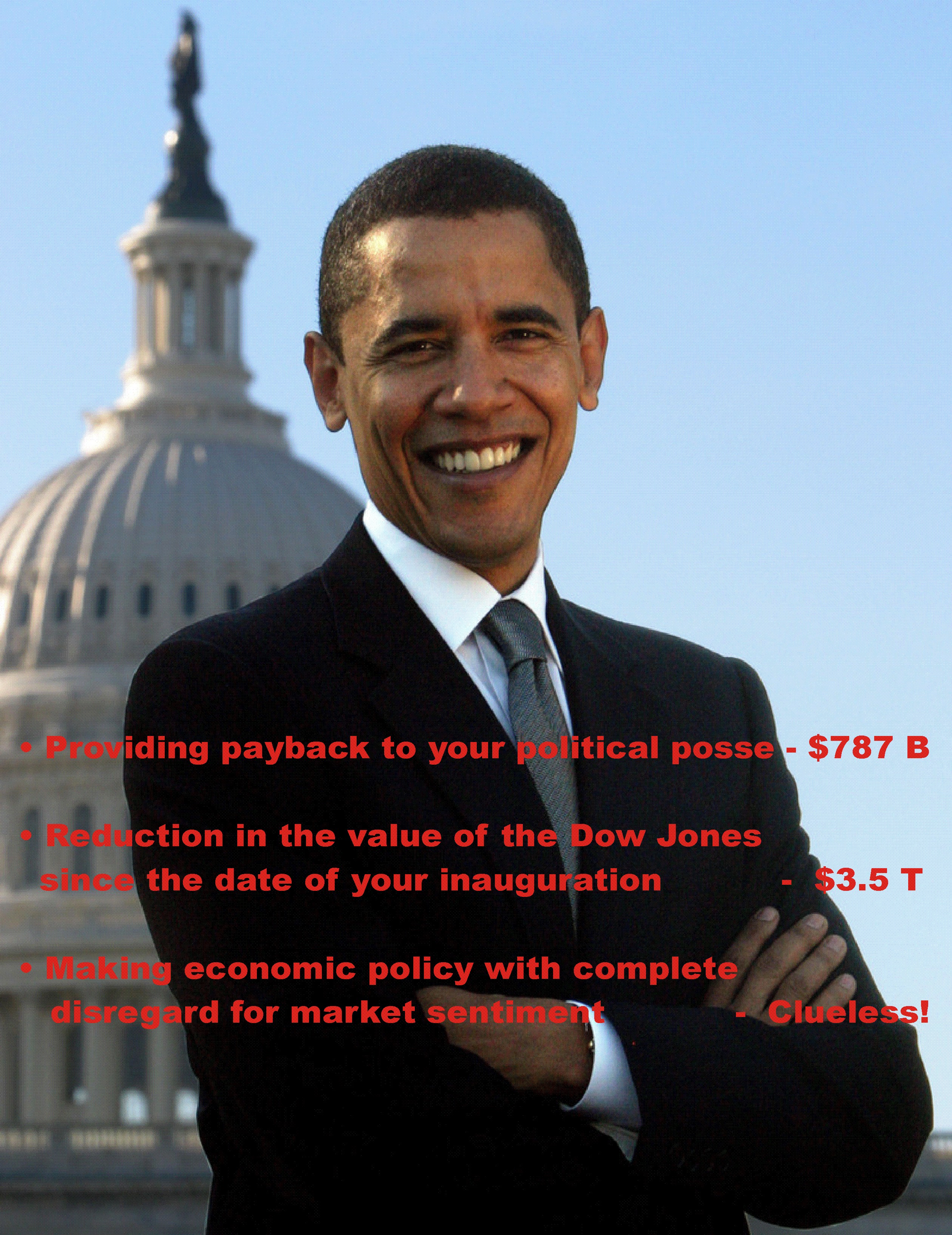Between, his Tuesday night address to Congress and a speech today, President Obama has revealed his budget proposals not only for the coming fiscal year but in large part, for the length of his Presidency.
First, let’s deal with the issue that is budget proposals are somehow different than those provided by previous administrations. They aren’t. While there have been different methods of presenting the budget such as continuing operations versus special appropriations for Iraq, there has been one constant comparable in all of them; the increase in debt required to service them. Put in other words, each of the fiscal years, regardless of how the budget was compiled, can be compared based upon the year end debt that they created.
When President Bush took office, the US debt was approximately $5.7 Trillion. At the end of Bush’s first term, total debt was $7.4 T, an average increase of $350 Billion per year. During Bush’s second term debt ended around $10.6 T with $1.6 T of that coming in the last year alone. If you take out the last year the average increase was $500 billion per year and that was while paying for the Iraq war.
Enter President Obama.
I won’t pick apart what he’s done to the deficit this year, except to say that while Obama is quick to talk about what he “inherited,” he’s not so ready to discuss that he is just as responsible for the $1.75 T projected deficit of this year as Bush is. After all, wasn’t it than Senator Barack Obama who assured us that he was “just a phone call away” working to persuade Congress to pass the $700 B TARP. And wasn’t PEBO who was consulted on the auto bailout? Wasn’t it also PEBO who made the ultimate decision on requesting the second tranche for Tarp? Finally, as President Obama wasn’t it he who led the way to the stimulus package, the largest single expenditure ever in the US? The only people who believe that this deficit was “inherited” are those who worship at the altar of Obama or simply chose to be ignorant.
Moving past ’09, President Obama’s budget plan will optimistically, increase the US debt by a minimum of $1T in the first two years and $500 B in the second two years of his administration, a total of a $3 T increase in debt in only 4 years! Enormous deficits especially when you consider that Obama will no longer have a war to finance, he will not have to spend to “reclaim the economy” after this year and the previous CBO budget had projected that the deficits during this same time frame would be “merely” $1.7 T!
I noted that the deficits that Obama is projecting are optimistic. In fact, the deficits are likely not even nearly achievable. Why do I say that? After all, isn’t part of Obama’s plan to increase taxes on “the rich,” close loopholes and find other ways to raise tax revenue? Yes he is. However, Obama has overlooked one very basic economic fundamental.
Back in June of last year I introduced you to Hauser’s Law. Hauser’s Law, simply put, says that no matter what you do to tax rates, how you open or close tax loopholes, whether you increase one type of rate and decrease another, tax income tends to equalize around 19.5% of GDP. Nobody can explain for certain why this happens but, when you see a trend that holds over nearly 60 years, across numerous administrations, spending and taxing philosophies, if it isn’t a law, it should be made one.
What’s Hauser’s Law got to do with Obama’s deficits? Simple.
Obama is banking on a rapid return of income that he can tax. Obama’s budget assumes that growth will be negative 1.2% this year returning to a robust 3.2% next year. The CBO which is in line with many private economists, believes growth will be negative 2.2% this year and positive 1.5% next year. Doesn’t sound like much until you realize that Hauser’s Law says that each percentage point equates to about $28 B of missed tax revenue and that it compounds over the time frame. If Obama is off by just 1% in each of the years that translates to a deficit understatement of over $130 B (remember when a Billion used to be a big number?). If the CBO is right and Obama wrong, the first two years alone will translate to over $130 B with additional shortages in the last two years because of a lower GDP run rate.
As an aside, isn’t it ironic that Obama’s budget is highly optimistic in projecting revenue when he’s been telling us for months that this is the worst economic downturn since the Great Depression? If you look at what happened to GDP the years following the depression Obama is not just optimistic, he’s delusional!
On top of the overly optimistic growth rates is another problem for Obama’s tax revenue. Obama has committed to significantly increasing a number of taxes to increase the revenue. He has even proposed a new tax, a carbon tax to generate significant amounts of new revenue. Economists of all persuasions will tell you that increasing taxes will reduce overall GDP. Increasing taxes on something will always cause less of that something to be consumed or created. Don’t believe me? Just take one look at what is happening to cigarette consumption as taxes continue to be increased on them…it’s not going up! Now we can discuss what the elasticity of that change is i.e. do you have to double the taxes before GDP is impacted or will a 1% increase in taxes impact GDP. However, Hauser’s law says that the elasticity discussion is moot. Hauser’s Law will say that the very fact that less GDP is generated will result in less tax revenue being generated regardless of what the actual rates are.
Everything Obama does is for the optics or in how the action supports his ideology. It’s too bad that he doesn’t approach issues from an actual intelectual honesty and curiousity. If he had in the case of his budget, he may have learned the core fact from Hauser’s Law:
Putting it a different way, capital migrates away from regimes in which it is treated harshly, and toward regimes in which it is free to be invested profitably and safely. In this regard, the capital controlled by our richest citizens is especially tax-intolerant.
Contrary to Obama and Gibb’s protestations that this is the first budget with “full disclosure,” this is a budget that is built on more optimism than all the “Hope” in Obamaland. The budget will fail on any measure of fiscal integrity and responsibility. My hope is that the country doesn’t fail economically along with it.
Comments Off on Obamanomics 101



